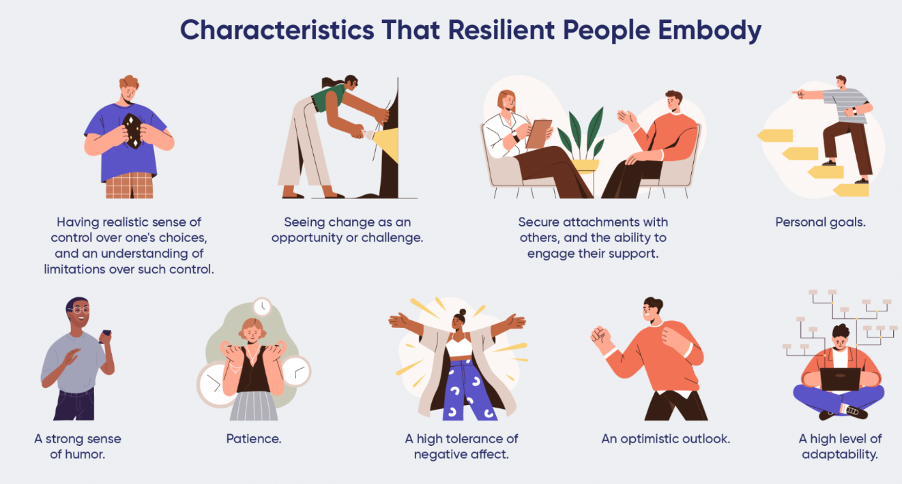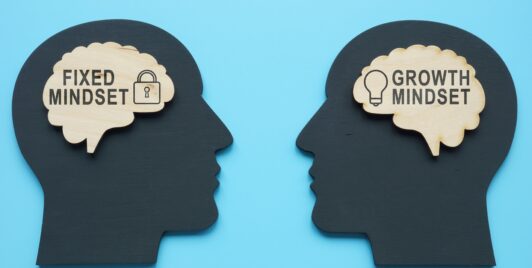Resilience is the ability to recover from a challenge and to use that challenge as a learning opportunity. In the workplace, resilience can mean solving problems, facing challenges head on and bouncing back from mistakes. Overall, people perceive others to be resilient where they:
- have a consistently positive outlook
- are able to deal with the difficult situations they face with ease
- do not exhibit excessive negative emotions during the difficult times
- have a certain coping mechanism in place

Why is resilience so important these days?
Given the evolving needs of organisations, building resilience is a key strategic priority for most companies. Overall, people will perform better if they aren’t just keeping their heads above water. Instead, opportunities for growth and self-learning that come with change will help to energise them.
By understanding resilience, and with the right support tools, people can use certain techniques and activities to help build up and maintain their resilience.
In today’s organisations, resilience has become a key human trait required for peak performance. It’s an increasingly important characteristic for organisations to cultivate in their employees.
What does resilience look like?
The characteristics that resilient people embody are:

How can you build up your resilience?
- Focus on your physical wellbeing
- MindBerry found that employees who regularly got adequate sleep were 4.3 times more likely to be resilient.
- Practice relaxation techniques
- Part of developing resilience is training the mind to stay relaxed, even when faced with stressful situations.
Here are a few simple relaxation techniques you can practise:
- Spend time with friends and family
- Find activities that help you to relax, such as drawing, gardening, walking or cooking – do whatever works for you!
- Try out mindfulness and meditation – there are a number of apps that can help you
- Practice re-framing threats as challenges
When we see something as a threat:
- We perceive that the situation is beyond our control
- We develop fear, anxiety, and sometimes anger
- We feel a fight or flight response
Cognitive approach is the way in which we view an event or situation — including its meaning and what is required to overcome it. The thought feeds the feeling, so we need to find ways of thinking positively. In doing so, it helps us to recognise the possibility of growth when faced with a challenge. It also gives us the belief that we have the resources to deal with the situation.
This approach results in feelings of energy, anticipation, and excitement. These feelings tend to mobilise people for action and problem-solving. In doing so, this helps to neutralise the threat.
- Mind your mindset
Our beliefs, attitudes, feeling and values influence our mindset and make us act in certain ways. Our mindset determines how we interpret and respond to situations.
Becoming aware of the characteristic of our mindsets is the first step to changing them, and changing how we respond to situations.
- Get connected
The support system that surrounds the person is one of the most important external resilience factors. A person’s social network helps provide a buffer against the stresses of resilience. This is because social support helps people manage stress. It’s also because social support helps people solve their challenges and find new opportunities.
One reason extroverted individuals tend to be more resilient is because they are more likely to reach out to others when they need help.
- Practice self-awareness
Paying attention to the stories and self-talk we do in our heads can help us recognise when our resilience is being stressed, or we need some maintenance.
Make a point of noticing what you tell yourself as an early warning that your resilience is low.
And finally…
Organisations can help to equip their employees with the skills they need to adapt. Resiliency is key to creating an agile workforce. Employees also learn not just how to adapt but also how to thrive in change. Of course, building resilience in the workplace is not going to happen overnight. It is a trait that you need to develop over time. So, if you’re looking to develop mental fitness and resilience, ‘GET IN TOUCH’ with MindBerry and see how we can support you and your team in developing more Resilience.


